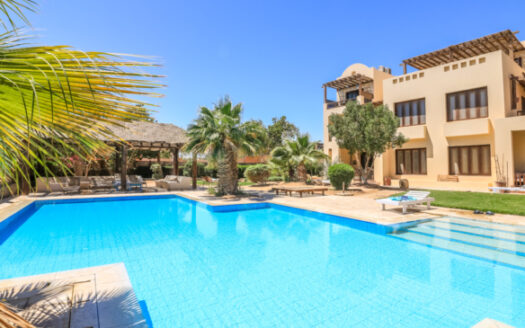Investor’s Guide: Purchasing Property in Egypt as an Expat
Introduction
Egypt is rapidly becoming one of the most attractive destinations for expats seeking real estate opportunities in a warm, accessible, and affordable country. From beachfront apartments in Hurghada to luxury villas in El Gouna or Soma Bay, the variety and value of property options are hard to match. If you’re considering purchasing property in Egypt as an expat, this guide covers everything from legal steps to financing tips, helping you make a confident and compliant investment.
Why Expats Are Investing in Egypt
Egypt’s real estate market is open, diverse, and supported by clear legal frameworks for international buyers. Expats are drawn to Egypt for:
- Low property prices compared to Europe and the Gulf
- Freehold ownership rights in designated zones
- High rental yields (especially in resort towns)
- Residency eligibility tied to property value
- Year-round sun and low cost of living
Whether you’re buying for retirement, a holiday home, or an income-generating asset, Egypt’s property market caters to expats with flexible developer terms and legal support.
Where Can Expats Buy Property in Egypt?
Foreigners can buy property in several high-demand locations. Some of the best places for expat investment include:
El Gouna
- Master-planned by Orascom
- Ideal for long-term living, high-end rentals, and families
- Strong capital appreciation
Sahl Hasheesh
- Gated, resort-style community
- Excellent for short- and long-term rentals
- Popular with Europeans and Gulf buyers
Soma Bay
- High-end, low-density destination
- Golf, spa, and wellness lifestyle focus
- Limited inventory = premium pricing
Hurghada
- Wide range of property prices and neighborhoods
- Large expat community and strong rental demand
- Entry-level investment starting from $50,000
New Cairo & New Capital
- Urban compounds ideal for professionals or families
- High resale value and growing expat demand
To explore listings in these areas, visit the Buildix Egypt Property Portal.
What Expats Need to Know
Egyptian law permits foreign nationals to own residential real estate in designated areas under freehold terms. Here’s what expats should be aware of:
- You may own up to two properties in Egypt, each up to 4,000 sqm
- Property must be used for residential purposes (not agriculture or commercial without permits)
- You are entitled to resell, rent, or inherit the property freely
- Many resort areas offer Green Contract eligibility, the official title deed
- Most purchases are done through developer contracts which are legally valid
Pro Tip: Always hire a local attorney to review contracts, check land registry status, and process your documentation with the notary public.
Step-by-Step Buying Process for Expats
1. Choose a Location & Property Type
Decide whether you want a beach apartment, villa, townhouse, or serviced unit.
2. Sign a Reservation Agreement
Secure your unit with a deposit (usually $2,000–$5,000) and freeze the price.
3. Conduct Legal Due Diligence
Have your lawyer verify ownership, zoning, and the project’s license.
4. Sign the Sales Contract
Agree on payment terms, handover date, and contractual obligations.
5. Payment & Delivery
Installments are typically made over 3–8 years. Handover is confirmed with a certificate and unit inspection.
6. Optional Title Registration
You can apply for a Green Contract through the real estate notary once the property is fully paid and registered.
Financing and Costs
Most expat buyers in Egypt do not require a local mortgage due to the availability of developer-backed installment plans.
Typical Terms:
- 10–30% down payment
- 3 to 8-year installment plans
- Interest-free options in most new developments
- No bank involvement required
Additional Costs:
- Legal fees: ~1–2%
- Registration (if applicable): varies
- Maintenance fees (for compounds): $500–$1,500/year
- Furnishing (optional): varies by unit size
Residency and Ownership Benefits
One of the biggest advantages of owning real estate in Egypt as an expat is the ability to apply for renewable residency.
- 1-year or 3-year residency permits available
- Linked to ownership of legally registered or high-value property
- Simple process managed via the Ministry of Interior
Owning property also allows you to rent your unit for income, host family and guests, and pass the asset on to heirs without inheritance tax.
Conclusion
Purchasing property in Egypt as an expat is a legally sound and financially rewarding decision—especially when supported by the right legal team and a clear investment plan. Whether you’re looking for a retirement base, a second home, or rental income, Egypt’s property market offers access, affordability, and lifestyle in one package.
Ready to invest?
Browse expat-friendly listings on Buildix or contact a certified real estate advisor to receive personalized guidance and a shortlist of eligible properties.
Mini FAQ
Can expats buy property in Egypt?
Yes. Foreigners can legally own freehold property in designated zones like El Gouna, Hurghada, and New Cairo.
Do I need a residency visa to buy property in Egypt?
No, but owning property may qualify you for a renewable 1–3 year residency permit.
Is property ownership safe for foreigners in Egypt?
Yes, provided the contract is reviewed by a lawyer and registered properly. Egypt has strong protections for foreign investors.






